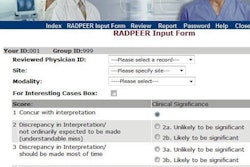The Healthcare Information and Management Systems Society (HIMSS) has recommended to the U.S. Congress that it should conduct a study to identify an appropriate nationwide patient data matching strategy.
HIMSS issued this recommendation in conjunction with its legislative agenda following the HIMSS Policy Summit held earlier this month in Washington, DC, as part of National Health IT Week. A study of patient data matching issues is needed in the interest of patient safety, privacy, and security, and to achieve the full potential of health information exchange in the U.S., according to the recommendation.
This has been an unresolved issue since HIPAA was passed in 1996, HIMSS said, pointing out that no presidential administration has dealt with a mandate in the act for the creation of a "unique individual identifier" for healthcare purposes.
HIMSS said that with the passage of the Health Information Technology for Economic and Clinical Health (HITECH) Act in 2009, and the initiative to adopt electronic health records, there has been a focus on health information exchanges (HIEs).
"As providers increasingly communicate using HIEs, the risk of mistakenly matching data with the wrong patient exponentially increases," HIMSS warned. "Compromise in data integrity may occur as information is exchanged between different entities using different hardware and software."
Patient data mismatches are becoming an escalating problem, the organization said. Not only does the problem potentially compromise patient safety, the cost of correcting information is estimated to be in the hundreds of millions of dollars per year.
HIMSS asked Congress to conduct a study and prepare a report within six months of study completion that includes the following:
- The prevalence and associated costs of patient data mismatches nationwide
- The costs of correcting errors from mismatches
- The safety risks associated with not having a nationwide strategy
- The benefits and implications of applying a nationwide strategy
- The impact on privacy, security, and safety of a nationwide strategy
- Current and near-term technological solutions
- The costs/benefits and practicality of a nationwide strategy
- Best industry practices currently employed to ensure reliable patient data matching across systems while enhancing patient privacy, security, and safety
HIMSS requested that legislation be passed based on the recommendations of the report.



















